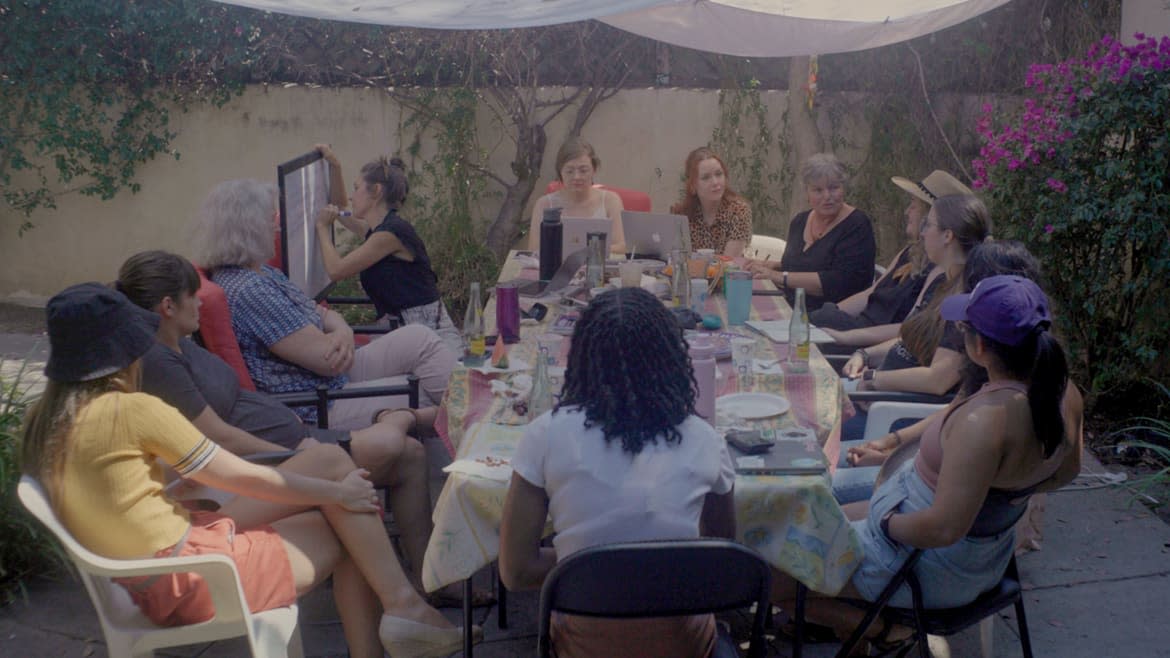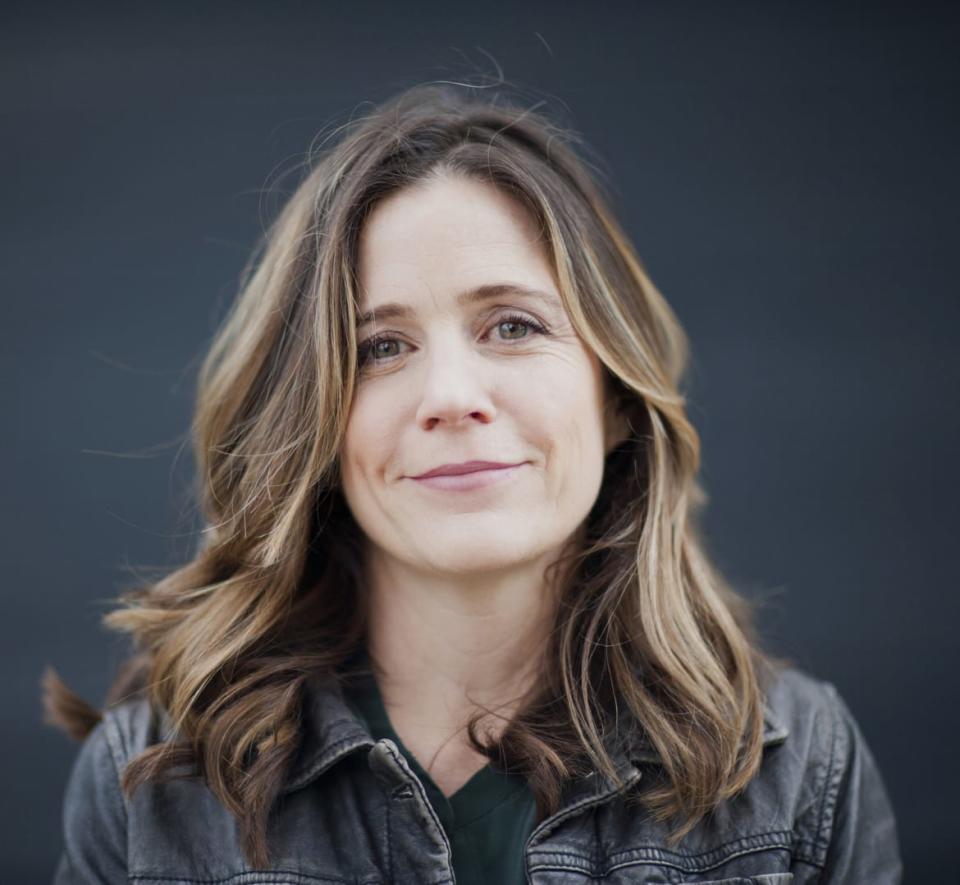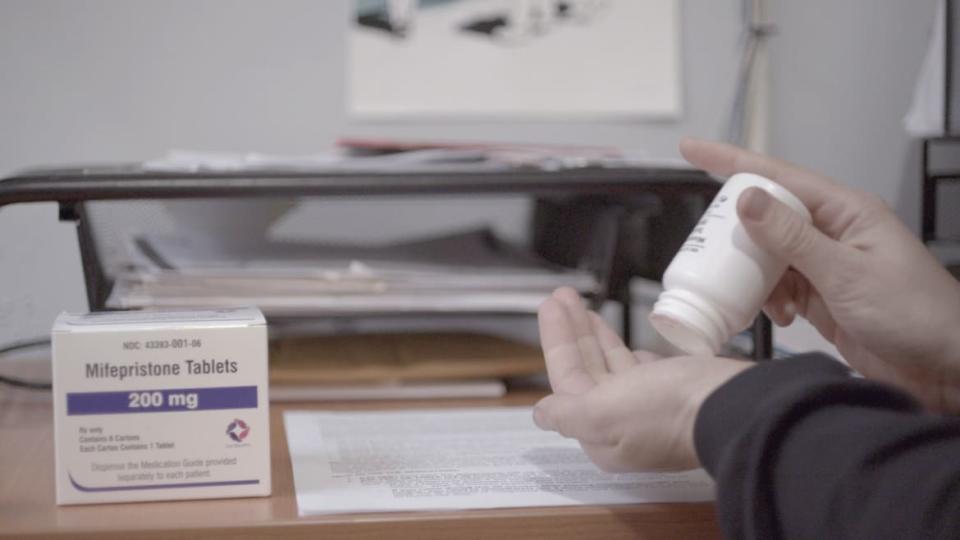Behind ‘Plan C,’ the Powerful Film That Rallied Abortion Activists at Sundance

In the documentary Plan C, we see something that shouldn’t feel so extraordinary but somehow is: a woman celebrating her abortion, with a big, unabashed grin on her face.
The feature, which premiered Monday at Sundance, certainly covers a lot of dark themes; while it’s mostly focused on the circulation of the abortion pill, Plan C also touches on the overturning of Roe v. Wade and protests from both sides of the ideological divide around the country. But for one hopeful moment, we get to see one of the film’s subjects, Jasmine, happy, excited, and cheering about her abortion.
It’s the kind of representation of abortion we don’t often see in movies. Characters in fictional films who are carrying babies usually seem upset by the idea of abortion, distraught at the procedure or those protesting outside women’s health clinics—like in Juno or Waitress, for example. Even when someone does follow through with an abortion on screen, they’ve often gone to great lengths to get there—the “abortion road trip” has even become a full-on movie genre.
But Plan C offers something new: relief. It’s a sense of hopefulness that director Tracy Droz Tragos set out to convey when she began filming her documentary about abortion pills four years ago, before Texas made it illegal to “aid and abet” in an abortion after six weeks of pregnancy, and before the overturning of Roe v. Wade last year. In spite of all that devastating news, the organizers spotlighted in Plan C prove that there can still be optimism at the core of such a deeply divisive issue.

Tracy Droz Tragos
“At the end of the day, abortion can be a very pro-life, pro-family decision,” Tragos tells The Daily Beast over Zoom from Sundance in Park City, Utah. “These are things that I don’t think we hear enough. In the film, Jasmine has three kids who she loves so much, but she can’t afford to have any more children. Her speaking her truth is her pro-family, pro-life choice. There’s so much hypocrisy and bullshit in the ‘anti’ position.”
As it happens, there’s another documentary at Sundance that goes hand in hand with Plan C. Justice follows damning sexual assault allegations made against Brett Kavanaugh, the Supreme Court justice who happened to be the inspiration behind Plan C. (Even more accusations of sexual misconduct have been leveled against Kavanaugh in the days since Justice’s premiere at the festival.)
“I remember people standing up in the audience in those hearing rooms in protest, sort of shouting at this wilderness. And yet this guy was gonna be appointed no matter what. I’m so glad this film’s out there,” Tragos says of Justice, although she differentiates the two docs because “our film is giving hope. We’re actually saying there’s something you can do.”
New Brett Kavanaugh Sexual Assault Allegations Revealed in Secret Sundance Doc
Both films are premiering in Utah, a red state with new restrictions; abortions there are banned after 18 weeks of pregnancy, but are still legal out of state. Enter the Plan C team, co-founded and run by Francine Coeytaux and Elisa Wells, who help distribute abortion pills by mail. As the primary subjects of Plan C, the team behind the public health campaign used Sundance as an opportunity to spread the word about the abortion pill while at the festival. Thanks to telehealth, one of the doctors featured in the film was even able to prescribe five sets of abortion pills while at Sundance.
“Folks in the film are just kind of taking this and running with it. We’ve got mobile billboards. They’re doing ice sculptures of abortion pills. They’ve got pins and stickers,” Tragos says. “That’s all we want. It’ll be interesting to see the impact of that.”
Security measures have been enforced for the film as it hosts more screenings this week; Meredith Perry, who edited Plan C, says she was sure to express her gratitude to security guards when they thoroughly checked her bag at the entrance to a screening. Still, Perry and Tragos aren’t that scared of counter-protests—or, in their words, “bullies” who might try to disparage their film.
“We want to step out into the light,” Perry says. “Nobody should be ashamed of having an abortion, helping someone else have an abortion, any of that. The fear is pushing people down. We want the opposite of that. We want to empower.”
While she was editing the film, Perry said she found a similar trend recurring in the way women talked about their abortions: they kept trying to explain why they were getting them, often giving an excuse like the Plan B pill failing them. But Perry edited most of that out in order to stay away from the “fear” aspect and to instead empower her subjects.
“I started to think, we don’t have to have them explain that to us. I don’t think we need to include people’s explanations for why, because then you start to think, well someone else shouldn’t do it, right?” Perry says. “But no, this is a personal decision, and it’s right if it’s what you want to do. Nobody should be judging. That’s part of not being ashamed, is not feeling like we have to say, ‘This is what happened, I feel really bad about it.’”
Not only is there a stigma surrounding the entire concept of abortion, but the actual procedure is quite tricky, too. Clinics can fill up, especially as several states have now restricted abortion entirely in the wake of Roe v. Wade’s overturning, and it can be expensive, even with insurance. Plan C, however, helps folks who wish not to be pregnant find abortion pills, which allow them to proceed with an abortion in their own home.

Mifepristone tablets
But many people still might not know the abortion pill exists, which is why the team behind it hopes their movie can educate people on how it works and where to get it. The “pill” is actually made up of two pills—mifepristone and misoprostol (lovingly called “miffy” and “miso” in the doc), which terminate a pregnancy when taken in combination. The FDA has approved both medicines, recently allowing pharmacies to sell the pills to people with a prescription, but there are constant threats to the public’s ability to buy the drug.
“The FDA had all of these [restrictions]—and it has loosened some of them—around dispensing this drug. They treated it like an opioid, even if it was safer than Tylenol,” Tragos says. “It was all political. People don’t know about it because it was hard to access. But increasingly I hope people will know about it and I hope this film will be part of how people will know about it.”
Plan C doesn’t go to great lengths to explain the ongoing updates to legislation surrounding the abortion pill—nor does it address the supply chain, the pill’s history, or even how one uses the pill—but that’s partially because of the overturning of Roe v. Wade. Tragos explains that if abortion was still legal in all 50 states, this would have been a totally different movie; there would’ve been more time to follow Coeytaux and Wells, for example. But once the Supreme Court’s leaked draft opinion last May suggested the overturning of Roe v. Wade was imminent, Tragos felt a sense of urgency to spread information about the pill as quickly as possible.
“When the leak happened, I went to Oklahoma and heard people calling the clinic talking about the impact of abortion being outlawed in Oklahoma. People could not come into that clinic and [said], not knowing that they had any other option, that they’d kill themselves,” she recalls. “When I was in that clinic and experienced that, which is some of the saddest stuff I’ve ever seen, I was like, ‘I’ve got to finish this film.’”
The Inside Story of Bumbling Extremists’ Sad Crusade Against Abortion Pills
Releasing a film at Sundance, where it has the opportunity to be acquired by a number of hungry distribution companies, is the perfect way to spread the word about the abortion pill. (Tragos’ last doc about abortion, Abortion: Stories Women Tell, landed at HBO after a Tribeca premiere.) It’s a more permanent way to spread information than, say, on social media, where abortion activists are frequently banned or censored. Ironically, Tragos herself was just removed from Twitter.
“Frankly, I haven’t spent enough time [on Twitter] to understand if I was hacked or simply if I was removed,” Tragos says. “I do understand the larger implications of what has been happening with the organization. I’m not sure if it happened to me, but with the organization, there is a lot of active censorship—they’re being taken down from Instagram and various social media sites, which is a powerful tool in spreading this information.”
Tragos continues, more hopefully: “We hope this movie is part of the answer back to that. We can’t be censored. We can’t be silenced.”
Still, despite all the bans, the stigmas, the costs, and other hurdles, hope prevails. Plan C ends on a positive note, insisting that even if 100 abortion activists are jailed, there will still be thousands more waiting to help in the fringes.
“I have a quote that didn’t make the film,” Perry recalls, citing the activist Loretta J. Ross. “She says, ‘They cannot repeal the entire 21st century.’ History is on our side, you know?”
Get the Daily Beast's biggest scoops and scandals delivered right to your inbox. Sign up now.
Stay informed and gain unlimited access to the Daily Beast's unmatched reporting. Subscribe now.

